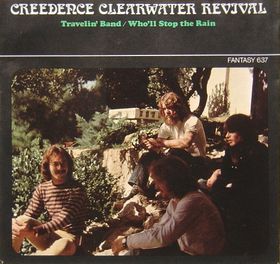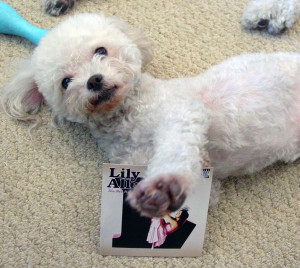Celebrating the birthday of Pet Shop Boys’ Chris Lowe with a bumper crop of PSB tunes on today’s playlist.
Follow Tunes du Jour on Facebook
Follow Tunes du Jour on Twitter
Follow me on Instagram

Inspired by the May 28 birthdays of Creedence Clearwater Revival’s John Fogerty, Gladys Knight, Fine Young Cannibals’ Roland Gift, Kylie Minogue, Adam Green, The Presidents of the United States of America’s Chris Ballew, the Caesar’s Cesar Vidal, Fam-Lay and Patricia Quinn.
June is LGBTQ+ Pride Month. Tune du Jour celebrates with this playlist consisting of two hundred songs by and/or about Ls, Gs, Bs, Ts and Qs. Happy Pride!
Click here to like Tunes du Jour on Facebook
Follow me on Twitter: @tunesdujour
Follow me on Instagram: @glennschwartz
They came to dance. They came to celebrate. They came to enjoy life. They came to love.
They went to a place where they would feel comfortable. They went to a place where they would feel safe and supported. They went to a place where they could be themselves. They went to a place where they could be as gay as they truly are and wanted to be. They went to a place where they could escape the shitty world outside, with shitty jobs and shitty people with shitty views of those who are different than they are.
It was a Saturday night, and they needed to dance.
Children didn’t stop going to school, African Americans didn’t stop going to church, and we won’t stop going to clubs.
We will mourn. We will cry. We will persevere. We will win.
It’s Friday, and we need to dance. Don’t think you can stop us. Our Pulse is strong.
Click here to like Tunes du Jour on Facebook!
Follow me on Twitter: @TunesDuJour
Follow me on Instagram: @GlennSchwartz
Actually, today is not Jesus’ birthday. At least not Jesus Christ’s birthday. Maybe Jesus de la Guarda of East L.A. was born on this date in 1983 (happy birthday, Jesus!), but Jesus Christ was not.
Most likely, Jesus (Christ, not de la Guarda) was born in autumn, perhaps on November 18. Not only is December 25 not His birthday, but 0 was not His birth year, according to some scholars. The assumed year of His birth is 6 to 4 B.C. That means Christ was born six to four years before Christ! He was truly ahead of his time! Ba-dum-bump.
Regardless of when His actual birth date was, folks in many parts of the world celebrate it today, because nothing is open anyway so why not?
As for me, I need to dance! The Tunes du Jour weekly dance party kicks off with Snap!’s “Mary Had a Little Boy.” Happy birthday, Jesus de la Guarda!
Click here to like Tunes du Jour on Facebook!
Follow me on Twitter: @TunesDuJour
Billboard magazine’s first disco chart was published in October of 1974. Its #1 song was “Never Can Say Goodbye” performed by Gloria Gaynor. That record stayed on top for four weeks, soon crossing over to the pop chart, where it peaked at #9.
An eighteen-plus minute medley of “Honey Bee,” “Never Can Say Goodbye” and “Reach Out, I’ll Be There” reached #2 on the Disco chart in early 1975, leading to Gaynor being named “Queen of the Discos” by the National Association of Discotheque Disc Jockeys in March of that year.
Six more top ten disco hits followed in 1975 and 1976, but then her fortunes dried up. Her sole entry on the Disco chart in 1977 reached only #38. Her next charted disco single was over a year later, and peaked at #24. By this point, Donna Summer was the new Queen of Disco. Summer was also crossing over onto the pop chart, while Gaynor’s sole top 40 pop single was “Never Can Say Goodbye.” She failed to crack the Hot 100 in 1976 and 1977.
Her record company, Polydor, reached out to producer Dino Fekaris and asked him to produce for Gaynor a cover of the Righteous Brothers track “Substitute,” then a recent hit overseas for a group called Clout.
Fekaris was a staff songwriter at Motown Record for almost seven years before the company let him go. Determined not to let that career setback derail him, Fekaris got together with his songwriter and production partner Freddie Perren, who also had a stint at Motown, and wrote a song about getting over the fear of the unknown and surviving what life throws at you. They wanted a woman to record the track, but didn’t have anybody in mind. They decided to give the song to the next diva they work with. That’s when Polydor called with the Gaynor gig.
As requested by her label boss, Gaynor recorded “Substitute” to be the A-side of her next single, but the song about survival, which she recorded to be the record’s B-side, really resonated with her. Besides her career troubles, she recently lost her mother and fell on stage while performing, which required her to undergo spinal surgery and spend six months in the hospital. She recorded the tracks wearing a back brace.
“Substitute” was released in the fall of 1978. It failed to make the Hot 100.
One night around that time, Studio 54 DJ Ritchie Kaczor flipped over “Substitute” and played its B-side. The patrons ignored it that first time, but Kaczor kept playing it. Eventually, it became the club’s most popular cut. Soon, all New York City clubs were playing the track.
In November 1978 Vince Aletti wrote in Record World magazine that this song “is Gaynor’s very best work in years…delivered with such relish that one can’t help but get caught up in the emotion.”
In Boston, disco radio DJ Jack King played the single’s B-side and reported that “my listeners went nuts!” Seeing the response this song was getting, Polydor reissued the single with “Substitute” as the B-side. The A-side was now the anthem “I Will Survive.”

In January 1979, “I Will Survive” returned Gloria Gaynor to #1 on the Disco chart, where she remained for three weeks. In March of that year the record hit #1 on the Hot 100, where it also stayed for three weeks. It went on to become a smash around the world.
At the 22nd Annual Grammy Awards ceremony on February 27, 1980, Gloria Gaynor’s “I Will Survive” won for Best Disco Recording, the only time that award has ever been given, over Michael Jackson’s “Don’t Stop ‘Til You Get Enough,” Rod Stewart’s “Da Ya Think I’m Sexy?,” Earth Wind & Fire with The Emotions’ “Boogie Wonderland,” and then Queen of Disco Donna Summer’s Bad Girls.
“I Will Survive” kicks off Tunes du Jour’s weekly dance party.
Click here to like Tunes du Jour on Facebook.
Follow me on Twitter: @TunesDuJour
Every Friday Tunes du Jour presents a dance playlist to get your weekend started on an upbeat note. This week’s party kicks off with Haddaway, who turns 50 today. That’s right – I know Haddaway’s birthday. Have a great weekend!
Click here to like Tunes du Jour on Facebook!

Every April, to coincide with Tax Day, my former Sony colleague Rich Appel creates the IRS countdown. In this case, IRS stands for It Really Shoulda, as in It Really Shoulda been a top ten hit. People vote for songs that they feel should have but didn’t make the top ten of Billboard’s Hot 100. Rich collates all of the entries and comes out with the Top 100 IRS songs.
Today is my birthday. Usually on birthdays, Tunes du Jour creates a playlist around the music of the birthday boy or girl. As Friday is dance day in these parts, I decided I would take inspiration from Rich’s IRS countdown and present to you a playlist of songs that I love to dance to that didn’t crack the pop top ten. Here are fifty such IRS tracks. (Actually, fifty-one, not because that’s how old I am but because the Diana Ross entry is two songs.) It’s my birthday and I need to dance!
Click here to like Tunes du Jour on Facebook!

In 1979, the Village People released “Go West,” a celebratory disco romp whose message to listeners in the know was “go west, young man, to San Francisco, a utopia for gays.” The lyrics included “Together we will love the beach / Together we will learn and teach.” And “I love you, I know you love me. I want you happy and carefree / So that’s why I have no protest when you say you want to go west.”
San Francisco was a popular gay destination and in 1977, home to the nation’s first openly gay elected official, Harvey Milk.
In 1993, Pet Shop Boys released their cover of “Go West.” They kept all the Village People’s lyrics and they kept the dance beat, yet their version has a tinge of melancholy.
The duo’s Chris Lowe explained “When the Village People sang about a gay utopia it seemed for real, but looking back in hindsight it wasn’t the utopia they all thought it would be.”
Tunes du Jour readers – join me as we go back in time and look at the evolution of a gay dance classic.
Disco music was born in the early seventies in black, Hispanic and gay clubs. As explained in The Queer Encyclopedia of Music, Dance and Musical Theater, “Perhaps no other popular art form is more closely identified with gay culture than disco and dance music. Gay men in particular adopted the intense, loud, thumping 4/4 beat of the dance music predominantly at the bars and discos that were among the few places where they could openly express their sexual identities in the 1970s and 1980s. As the musical backdrop for generations of gay men who came of age is such venues, dance music became inextricably connected with the gay experience.”
Disco really hit the mainstream in 1977 with the release of the film Saturday Night Fever, based on a magazine article. The film’s soundtrack album became the biggest-selling album of all time in the United States, a record it held until Michael Jackson’s Thriller surpassed it.
As disco became a major commercial force, many rockers, including The Rolling Stones, Rod Stewart and Kiss, turned to the genre to score some of the biggest hits of their careers.
In June of 1978, the Village People entered the pop top 40 with their first crossover hit, “Macho Man.” Hard as it may be to believe, most people at that time had no idea they were gay, despite the costumes and despite song titles such as “Hot Cop,” “San Francisco,” “Sodom and Gomorrah,” “Key West” and “Fire Island.” Everyone in the whole family enjoyed their second hit, “Y.M.C.A.,” where one can “hang out with all the boys.”
In March of 1979 the group scored their third hit single in under a year – “In the Navy.” The U.S. Navy considered using it as a recruitment theme. Said a Navy spokesperson, “The words are very positive. They talk about adventure and technology. My kids love it.”
During the Seventies San Francisco remained a popular destination for gays. A report by Alfred Kinsey in the early 1970s found: “San Francisco is generally considered the best city in the U.S. for homosexuals. It was partly due to the city’s ‘tradition of tolerance.’ Another factor was the city’s size and geography, as it is smaller and less residentially dispersed than New York or Los Angeles, which made it “more conductive to a tightly knit homosexual community.”
In March of 1978 the San Francisco Board of Supervisors passed “the most stringent gay rights laws in the country.” Elsewhere in the U.S., the few existing gay rights laws were rapidly being repealed.
In June of 1978 San Francisco’s Gay Freedom Day Parade drew approximately 350,000 marchers.
On May 21, 1979, Dan White, the assassin who killed gay rights leader Harvey Milk as well as San Francisco’s mayor, was sentenced to only seven years and eight months in prison. The verdict led to massive riots in that city in which demonstrators burned a dozen police cars and more than 160 people, including 50 policemen, were injured. This happened just days after the Village People released their follow-up to “In the Navy,” “Go West.” Suddenly, San Francisco didn’t seem as peaceful and idyllic as it does in that song.
A few weeks later, a disc jockey from a Chicago rock radio station hosted an anti-disco demonstration at Comiskey Park between two baseball games in a double-header. Tens of thousands of people brought disco records to be set ablaze in center field while the crowd chanted “disco sucks.” I’d posit that this was in effect an anti-gay anti-black demonstration by white heterosexual rock fans.
Authors Andrew Edelstein and Kevin McDonough agree. In their book The Seventies they wrote “If you were a white, heterosexual teenage male who preferred to wear jeans and a t-shirt and sit passively at a stadium-size rock concert, then disco could be an especially threatening experience.”
After the Comiskey Park demonstration, disco quickly went back underground and was heard primarily in gay clubs. It soon came to be called house music and hi-nrg.
It should be noted that while rock fans tried to kill disco in the U.S., it stayed popular in the U.K., Europe, and elsewhere in the world.
The 1980s brought about the rise of the so-called Moral Majority in the United States. Not coincidentally, it also brought the scourge that came to be known as AIDS, which initially hit the gay population hardest. Homophobia contributed to a delayed response by the government.
Ten years into the AIDS epidemic there was still no sign of an effective treatment or cure.
In 1992 the British duo Pet Shop Boys were invited to perform at an AIDS fundraiser. Chris Lowe came up with the idea to do the Village People’s “Go West.” He played the record for his singing partner, Neil Tennant, who called it “ghastly” and “awful.” He got more into it when he thought about what he and his partner could bring to it, including the addition of “a big choir of butch men.”
A year later, the Boys released their studio recording of the song, complete with the big choir of butch men. In the context of the AIDS pandemic and the devastation it caused, particularly to the gay population, the song “Go West” takes on a different meaning than it did in 1979. As the website Shmoop puts it, “The sunny utopia the Village People had once sung of was literally full of sick and dying people; hospital beds in San Francisco were full of dying patients and there seemed to be no end in sight.”
The spread of AIDS led to a rise in gay activism, which is acknowledged in a verse the Pet Shop Boys added to their version: “There, where the air is free, we’ll be what we want to be / Now, if we take a stand, we’ll find our promised land.”
Of this record, Wayne Studer, in his book Rock on the Wild Side, a collection of songs by or about gay males, wrote “As the Boys do it, ‘Go West’ becomes an eerily uplifting disco dirge, both happy and sad at the same time. Extraordinary.”
Both the Village People’s and Pet Shop Boys’ “Go West” failed to cross over to the Top 40 of the U.S. pop charts; however, both were hits in the dance clubs, with the Pet Shop Boys version going to #1 on the U.S. Dance Club chart. The Pet Shop Boys version did make the top ten pop charts in the U.K., Germany, France, Austria, Sweden, Switzerland, the Netherlands, Norway, Ireland, Italy, Japan and Australia.
It was around this time that Neil Tennant, the duo’s usual vocalist and lyricist, came out, to the surprise of nobody.
“Go West” was the second single released from the group’s fifth album, Very, an album that is included in the book 1001 Albums You Must Hear Before You Die. The opening line of the book’s write-up is “Though the Pet Shop Boys had always been really gay, Very was their first really, really gay album – and their first U.K. number 1.”
Very produced four top ten club hits in the U.S., including two #1’s – “Go West” and “Can You Forgive Her?”
In 2008 Australian web-site SameSame polled their listeners to find the “gayest songs of all-time.” Pet Shop Boys’ “Go West” came in at #6. The Village People’s “In the Navy” was #18, their “Macho Man” was #16, and their “Y.M.C.A.” was named the second gayest song of all-time, kept from the top spot by ABBA’s “Dancing Queen.”
Pet Shop Boys’ album Very made Out magazine’s list of the Gayest Albums of All-Time. It also made British music magazine Q’s list of the 100 Greatest British Albums Ever. It has sold over five million copies worldwide.
Where has “gay music” come since the release of Very? Here are two interesting facts: the very first openly gay artist to have a #1 album in the U.S. was Adam Lambert, and that happened just two years ago. One year earlier, a song went to #1 on the U.S. pop charts and stayed there for six weeks – a song that explicitly called on gays, lesbians, bisexuals and transgenders to love who they are, ‘cause baby we were born this way.
As for the key players in my story, Pet Shop Boys have sold over 50 million records worldwide, had twenty-two top ten hits in the U.K. thus far, and won Outstanding Contribution to Music at the 2009 BRIT Awards, England’s equivalent to the Grammys. Their most recent album, 2013’s Electric, hit #3 on the UK album chart. It included the single “Vocal,” a top three club hit stateside.
The Village People still tour with three of their original members. They have sold over 100 million records.
Despite the efforts of some folks, disco, while suffering some setbacks, didn’t die. As a matter of fact, one of last year’s most popular hits was Daft Punk’s “Get Lucky,” a disco-influenced record featuring guitar work by Nile Rodgers of the seventies disco band Chic.
Similarly, despite the efforts of some folks, the LGBT populations, while suffering some setbacks, continues to make great strides toward equality and respect.
Should you attend this Sunday’s Gay Pride Parade in West Hollywood, or any Gay Pride Parade this season, you will hear coming from many floats disco and house music, for that is the soundtrack of our movement.
I wish all my readers a very happy Pride. Dance!

“I love to have that conflict of something sounding so sweet but actually being really quite dark.”
That quote from Lily Allen summarizes one of my favorite attributes of her music – sunny melodies coupled with not-quite-sunny lyrics, a juxtaposition that makes for some wonderfully subversive pop tunes.
The song that put her on the map, “Smile,” exemplifies this. It’s a catchy song – upbeat, major chords. Lily wrote it about an ex-boyfriend who was cheating on her. Then the ex got dumped by his new girlfriend and he called Lily to console him, which brings us to the awesome chorus: “At first when I see you cry, it makes me smile. Yeah, it makes me smile / At worse I feel bad for a while, but then I just smile. I go ahead and smile.”
“Smile” appeared on Allen’s debut album Alright, Still, released in 2006. Her follow-up album, 2009’s It’s Not Me, It’s You, contains another brilliant example of this style, this time aimed at a well-known public figure.
The song was initially released by Allen on her MySpace page in 2008 as “Guess Who, Batman.” The song is not about anyone connected with Batman, but rather, someone whose initials match the first letter of each word in this title. If you’re still not sure, I’ll let Lily give you a clue: “It was originally written about this fucking arsehole who used to be the President of the United States of America. His name is George W. Bush.”
She made that comment after Bush left office and after the song was released with an additional verse and a new title, “Fuck You.”
Among the things for which she takes Bush to task is his perceived homophobia: “So you say it’s not okay to be gay / Well, I think you’re just evil.”
Shortly after the second album’s release an Australia guy with the YouTube moniker steviebeebishop created a video for the song that featured members of the L, G, B and T populations and their supporters around the world lip-synching the tune. It became a phenomenon that spread to other countries, with lip-synched versions emanating from countries such as France, Croatia, New Zealand, Hungary, Mexico and Brazil.
The song was no longer specifically about Bush, but directed towards anyone who expresses anti-gay sentiments. As steviebeebishop explained when he posted his video:
theres a disgusting amount of hate on the internet (especially on youtube!) directed at minority groups (especially the LGBT community) so i was inspired to organize this collab video. i never set out to change the world. i did not make this for the gay haters to see. i wanted to make something light hearted and funny for the victims of gay hate, to teach them to brush off the hate and stand strong and confident as who they are. you’re not alone! stevie loves you
Today is Lily Allen’s 29th birthday. As Friday is dance day at Tunes du Jour, we’ll kick off our playlist with a remix of “Fuck You.” By the way, Lily’s third album, Sheezus, is out today.